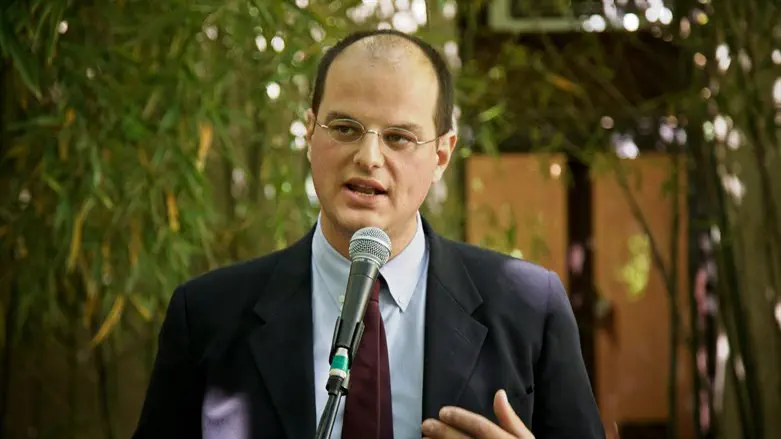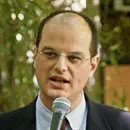
The French anthropologist Florence Bergeaud-Blackler, who was placed under police protection after the publication of her book "Frérisme et ses réseaux, l'enquête", knows something about it. Not only threatened with death and under guard. The Sorbonne has canceled one of her conferences for "security reasons". Threats that justified placing her under protection, the first at the National Center for Scientific Research (CNRS).
“That's why there are no more scholars working on Islamism,” Bergeaud-Blackler tells Charlie Hebdo. The scholar went on TV to say: "There is a taboo on Islamism in the university that makes research almost impossible and since Samuel Paty's beheading, those who still resisted are so afraid that they have almost given up".
At the same time, Masih Alinejad, a prominent Iranian dissident, was also placed under police protection in the UK after police received serious threats to her life. “We will be with you and protect you wherever you go. Give us your plans, we need to know everything in advance to prepare for close protection."
In Europe there are dozens of cases similar to Bergeaud-Blackler.
Gilles Kepel, who wrote the preface to Bergeaud-Blackler's book, discovers one morning that the jihadist who had slaughtered a police officer and his wife in Magnanville, France, has given a speech on Facebook in which he called for the killing of seven public figures. The Home Office called Kepel to tell him that his name was at the top of the list. Since then, Kepel has been under guard.
A professor of Iranian origin, Afshin Ellian, works at Utrecht University in the Netherlands, where he is protected by bodyguards. French journalist Zineb El Rhazoui has more bodyguards than many ministers. An academic from Sciences Po University, Klaus Kinzler, is under protection for violating the taboo of "Islamophobia". In Germany there is the sociologist Hamed Abdel Samad: 360 degree surveillance 24 hours a day. Samad told the Neue Zürcher Zeitung: “One day a Berlin police officer came to me and gave me a bulletproof vest and told me that from now on I should wear it during my lessons, because death threats against me have become more concrete and there are plans to put them into practice”.
In England, a teacher who fears for his life after showing pupils a cartoon of the Prophet Mohammed in a civics lesson has been given a new identity and has remained in hiding for two years, reveals the Mail one Sunday. A family source told the Mail: 'He lives away from the Batley area and has been given a new identity. He is slowly trying to rebuild his life but it is not easy. It could cost him his life. this area and the fewer people know about it, the better".
Then another. "A professor was canceled after false accusations of Islamophobia and revealed that he feared that Muslim extremists would kill him", says the Times. The scholar of human rights Steven Greer, 66, who went into hiding after students at Bristol University Law School in England accused him of being an 'Islamophobe.' Greer grew a beard and carried a screwdriver in case he was was attacked, revealing that he was more afraid for his life than during the "Troubles", the sectarian clashes in Northern Ireland. "For my own safety, I was forced to behave like a fugitive. " And again: "The campaign has been vicious and punishing and has put me and my family under intolerable stress. It was scary. To play it safe, my wife and I fled the house to stay in a safer place."
In Europe, critics of Islam have to move from one "safe house" to another. “This is 'safe house' number five…”, said Kurt Westergaard, the Danish cartoonist who first painted Mohammed. Geert Wilders, the Dutch politician critical of Islam, "is monitored 24 hours a day and lives in a government 'safe house'". Also living in a "safe house" is Lars Hedergaard, who is blamed for being the founder of the Danish Free Press Society.
They call them safe houses, but they are the graves of our failed tolerance.
Anthropologist Susanne Schröter, head of the Islamic Research Center, teaches at the University of Frankfurt. “The accusation of Islamophobia becomes an argument against any possible criticism of Islam,” Schröter said. "If freedom of expression is no longer possible, then this is the end of a free democratic society." Of the ten speakers at her conference, four move with bodyguards. “Because I'm on every radical's list,” Schröter revealed.
In Germany Ahmad Mansour is also under guard for his criticism of Islam.
Then there are professors who are unknown but who have ended up under guard for criticizing Islam. They are from Montauban to Essonne, France is full of them. Like in Marseille, where an academic ended up under guard at the university for criticizing Islam.
Easy to understand why some have chosen to withdraw.
Like Paul Cliteur, the Dutch academic critic of multiculturalism, he self-censored, announcing that he would no longer deal with Islam for fear of reprisals. “After the assassination of Van Gogh, the writer takes certain risks,” said Cliteur. “This is a scary development. What I do is self-censorship, absolutely.”
Europe's fate?
Giulio Meotti is an Italian journalist with Il Foglio and writes a twice-weekly column for Arutz Sheva. He is the author, in English, of the book "A New Shoah", that researched the personal stories of Israel's terror victims, published by Encounter and of "J'Accuse: the Vatican Against Israel" published by Mantua Books, in addition to books in Italian. His writing has appeared in publications, such as the Wall Street Journal, Gatestone, Frontpage and Commentary....
